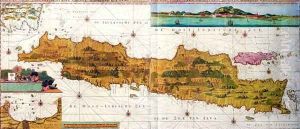Adrian Reland Paintings
Adriaan Reland was a notable Dutch scholar and cartographer, born in De Rijp, Netherlands, in 1676. His work spans various fields including geography, linguistics, and Oriental studies, reflecting the broad academic interests of the 17th and early 18th centuries. Reland's contributions to cartography and geography are particularly significant, as he was one of the first to base his work on sources from within the regions he was mapping, which was a departure from the speculative geography prevalent in his time.
Reland was educated at the University of Utrecht, where he showed an extraordinary talent for languages, including Hebrew, Arabic, and other Semitic languages, alongside his interest in geography. His academic prowess led him to a professorship at the University of Harderwijk at a remarkably young age, before returning to Utrecht as a professor of Oriental languages. Reland's scholarly work is characterized by meticulous research and a critical approach to sources, which earned him a lasting reputation in the fields of philology and cartography.
Among his notable works is 'Palaestina ex monumentis veteribus illustrata,' published in 1714, which is considered one of the most authoritative 18th-century works on the geography and antiquities of Palestine. In this work, Reland critically examined ancient texts and inscriptions, comparing them with contemporary accounts and his own linguistic analysis to provide a detailed account of the geography of Palestine. This rigorous methodology set new standards for historical geography and greatly influenced subsequent scholarship in the field.
Reland's contributions extended beyond his own research to include his role as an educator and mentor to other scholars, thereby helping to lay the foundations for modern Oriental studies and historical geography. Despite his relatively short life, Reland's work had a lasting impact on the development of these disciplines, reflecting the intellectual curiosity and methodological rigor that characterized the Enlightenment. He passed away in Utrecht in 1718, leaving behind a legacy of scholarship that continues to be respected and studied.
